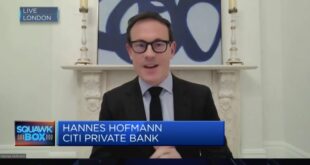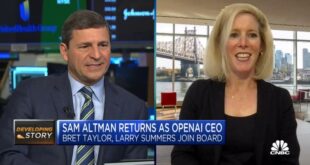
Denis Balibouse | Reuters
Chinese President Xi Jinping watches during a gift handover ceremony at the United Nations European headquarters in Geneva, Switzerland, January 18, 2017.
Broadly, however, investors are buoyed by better growth in China, and that’s been reflected in the numbers — the Shanghai Composite is up 5.3 percent this year. And to date, the Chinese renminbi has strengthened about 4 percent against the U.S. dollar.
“People are pretty bullish — the economy is pretty strong,” said Francis Cheung, a China equity strategist based in Hong Kong. It’s a sign that government efforts to stimulate the economy has worked: “People no longer worry about a ‘hard landing’ risk, renminbi risk,” Cheung said.
Experts also say that the real estate sector has largely been resilient, despite plenty of calls since late last year forecasting a slowdown.
On top of all that, “it’s a political transition year: There’s no way the government would let the economy falter,” Cheung said. China’s ruling Communist Party is due for a twice-a-decade leadership shuffle this fall, and maintaining stability is a top priority ahead of that change in power.
The makeup of investors in Chinese markets is also starting to shift. The rise of less savvy, mom-and-pop investors a few years back pushed stocks to incredible highs before a precipitous crash mid-2015 wiped out trillions in market value. These days, there are more “tuhao” investors — high net worth individuals — who are not as susceptible to rumors, and are looking more for long-term, strategic gains, according to Nomura’s head of China equity research and chief strategist Wendy Liu.
But Chinese markets have historically been very volatile. For now, experts say the assumption among investors is that China and the U.S. can still manage the situation, especially as economic sanctions have been put in place.
“Geopolitical risk on the Korean Peninsula has not yet been reflected in East Asian equity markets,” said Asia Pacific chief economist Rajiv Biswas at research firm IHS Markit.
But the minute that changes, market sentiment could also turn, though Biswas said it would be reflected first in South Korea — in Seoul stocks, the Korean won and specifically in credit default swap spreads which are traditionally an indicator of national-level crises — before spilling over into China’s financial markets.
That would be “the canary in the coal mine,” Biswas said.
 EU News Digest Latest News & Updates
EU News Digest Latest News & Updates


